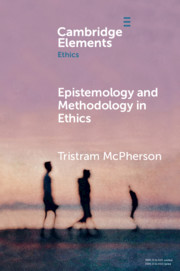Ethics’ reputation for wide-ranging, interminable disagreement, coupled with conciliationism regarding disagreement, has been leveraged as a basis for moral skepticism. The focus of this essay is on this challenge as it has been applied to philosophical ethics. I call the empirical conjecture underwriting the challenge into question – namely, that disagreement is widespread and roughly balanced within ethics – by describing the results of two studies involving over 400 moral philosophers. The studies reveal widespread agreement, and even consensus, on a range of purportedly contentious moral issues – capital punishment, abortion, eating meat, physician-assisted dying, euthanasia, and many others. The evidence the studies provide suggest that the extent of disagreement within ethics that the conciliationist challenge relies upon likely does not exist.
